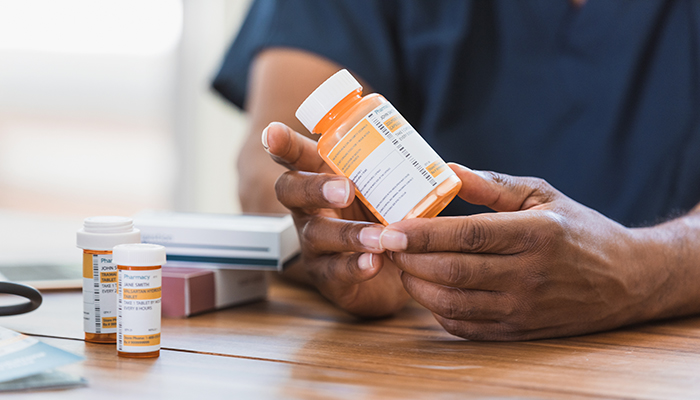How to Improve Medication Adherence
Hester Hill Schnipper, LICSW, OSW-C Program Manager, Oncology Social Work
MARCH 20, 2024

Most people going through cancer treatment take a number of medications which can understandably feel overwhelming. It can be stressful to go from taking the occasional Tylenol or aspirin to having a miniature pharmacy taking up space on the kitchen counter.
If you’re going through chemotherapy, your infusion nurse will send you home with a calendar or list outlining how to take the medications associated with your treatment. Such medications may include anti-nausea drugs, stool softeners, or pain medications to treat the side effects and symptoms you’re trying to manage. Taking everything you’re prescribed correctly is extremely important, both to maximize the drugs’ efficacy and to keep you safe. Having a set schedule is a good start, but that’s just the beginning of medication adherence.
Proper medication adherence is vital to keeping your side effects in check. Being treated for cancer and needing to understand/manage many medications is challenging without a doubt. However, a good jumping off point is understanding the reason for taking each drug, how and when it should be taken, and what, if anything, should be avoided while taking it. For example, alcohol interacts badly with some medications and can leave you feeling queasy, so abstinence is a wise choice. Be sure you have these conversations with your doctor before starting a new drug.
These are some practical ways to improve your medication adherence:
- Set up daily reminders and alarms on your phone
- Use an app to help you remember to take your medication
- Use a weekly organizer to keep your medication in order
- Keep your medication somewhere visible
- Create a daily routine surrounding your medication
Before writing a prescription, your doctor will carefully consider timing and dosage. Dosage is determined by your age, weight, kidney and liver health, and sometimes other medications you may be on. Some drugs must reach a certain level in your bloodstream to be effective while others must be taken on an empty stomach or after a meal. Whatever the caveat may be, medication adherence plays a huge role in making sure you get maximum benefits (and the least amount of grief) from your medication.
If you’re someone who hates the idea of managing so many medications, remind yourself that the goal is to keep you healthy throughout your treatment – the day will come when you can toss out all the pill bottles.
